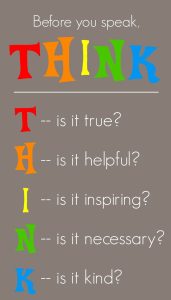16th Sunday after Trinity 2024 St Andrew’s Milngavie
Today we celebrated the 16th Sunday after Trinity accompanied by Abigail.
On Saturday 28th September we plan a church outing to walk over the newly opened Partick to Govan bridge to visit Govan Old Parish Church where there are Christian and Celtic artefacts. There will also be an opportunity to visit the Shipyard Museum nearby and enjoy refreshments at a local cafe. Meet at Milngavie station 1pm
This Week
Monday 3pm – Vestry Garden Room
Tuesday 10am – Prayer Group in the Garden Room.
Wednesday 2pm – Book Group Angela’s
7pm – NWRC Helensburgh
Thursday 10am – Said Holy Communion followed by coffee in Friendship House
Saturday 10am – First meeting of the Electoral Synod to elect the new Bishop.
Readings for next Sunday – 17th Sunday after Trinity – Jeremiah 11:18-20 James 3:13-4:3,7-8 Mark 9:30-37
 Today’s readings – James 3:1-12, Isaiah 50:4-9, Mark 8:27-38
Today’s readings – James 3:1-12, Isaiah 50:4-9, Mark 8:27-38
“Sticks and stones can break my bones but words will never harm me”
This saying is reported to have first appeared in The Christian Recorder of March 1862, a publication of the African Methodist Episcopal Church, where it is presented as an “old adage.”
The context in which these words were quoted is not known but of course we all know its not true! Every one of us knows what it feels like to have our feelings hurt by cruel thoughtless words, or unwelcome comments, or to receive negative remarks even in a home truth.
On the other hand, words carefully, kindly and sensitively chosen can have the opposite effect, bringing encouragement and healing.
In the epistle, James in this extraordinary passage, extols the virtue and evil of the tongue.
“But no one can tame the tongue. It is a restless evil, full of deadly poison. With the tongue we praise our Lord and Father, and with it we curse those who are made in the likeness of God. Out of the same mouth come praise and cursing”. James 3:8-10
Our tongues can bring great comfort and joy but also at moments the opposite.
However, the use of speech is a great gift, and the importance of communication has been essential for humanity since time began. From word of mouth in ancient times to parchment scrolls, newspaper, telephone, text and social media, people have always communicated effectively as possible.
In Jesus’ time news travelled largely by word of mouth. And therefore, his ministry was attended by a great many rumours. For a lot of the time, he was followed about by large groups of people who had heard stories about him and in those pre newspaper days could only join in the news by being there.
In the gospels we hear the stories of those who come into direct contact with Jesus. But we hear very little about these others, the shadowy mass of people hanging around the edges of all the action and we wonder what they may have thought and said about him. And in today’s gospel Jesus asks his disciples what are people saying about him?
“Who do people say that I am?” He asks and they answer quite readily. But then he goes to the heart of the question and asks “But who do you say that I am?”
And the disciples go quiet, it is much easier to pass on conversation and repeat other people’s opinions than have to state your own personal opinion and only Peter is prepared to risk an answer.
“You are the Messiah”
Technically Peter is right, and I expect he was thinking that that was the end of the subject, after all that was what Peter’s understanding of Jesus was; a great man sent from God teaching the ways of the kingdom, bringing wholeness and healing to people’s lives, offering love and forgiveness to all he met. And yet – there was more….“The son of man must undergo great suffering…be killed and in three days rise again”
Not what he was expecting…….naturally Peter was horrified at that thought and the way the conversation was going because suddenly we are entering into unknown territory. We are entering into the world of the divine and the world of the mysterious, both transcend our understanding. Jesus explains it to Peter by saying,
“You are setting your mind not divine things but on human things”
He says to the crowd and his disciples “Whoever wants to be my disciple must deny themselves and take up their cross and follow me.” Mark 8:34
It sounds challenging! But denying ourselves doesn’t mean doing without as such, it means denying ourselves as supreme, accepting that there is something greater than us, something that brings us hope and can give us treasure more wonderful than we can imagine. But getting this treasure is not always easy “Take up thy cross” It speaks of burden sacrifice, difficulty.
In Christianity, God offers us through Christ his love and forgiveness and through the resurrection hope of salvation. It is the most wonderful gift – It is an extraordinary Christian truth! The downside to it though is, can we believe it?
Like Peter we need to show trust and faith in the face of uncertainty and “set our minds on divine things, not human” And like the people in the crowds that followed Jesus, we need to articulate this truth. To find the right words to inspire and encourage others on their journey.
As the prophet Isaiah said in the passage this morning.
“The Lord God has given me a tongue of a teacher, That I may know how to sustain the weary with a word”. Isaiah 50:4
